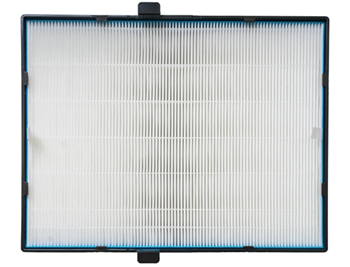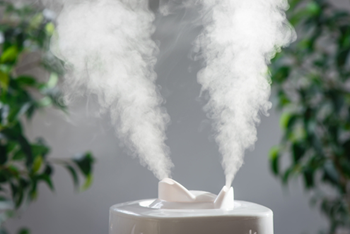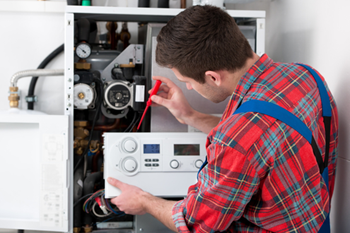According to the Asthma and Allergy Foundation of America, most Americans are exposed to asthma triggers every day because they spend most of their time indoors. Although sometimes it seems impossible to fight those triggers, there are ways to reduce them. Fortunately, an HVAC system can eliminate asthma triggers including dust, mold, mildew and pet dander from the indoor air. PFO Heating & Air Conditioning (PFO) is here to offer high quality HVAC services for those who suffer from respiratory issues such as asthma. We are your source to find indoor air pollution solutions.
The condition of your HVAC system directly correlates to your indoor air quality. Trenton NJ residents can greatly improve the health of their air when using their heating and cooling system. In this article, we will discuss how.
By improving the health of the air inside of your home…
you can help reduce allergens and other asthmatic triggers. This helps the occupants of your home because it reduces their allergies, respiratory issues, and any potential asthma attacks. There are many ways that you can improve your indoor air quality.

Filtration
Contents
 Air filters improve indoor air quality by reducing the amount of airborne particulate matter in the air. Examples of common indoor airborne pollutants and allergens include mold, dust mites, pet dander, cockroach droppings and pollen. Fortunately, modern HVAC systems come with standard filtration capable of eliminating some of these airborne particulate matter.
Air filters improve indoor air quality by reducing the amount of airborne particulate matter in the air. Examples of common indoor airborne pollutants and allergens include mold, dust mites, pet dander, cockroach droppings and pollen. Fortunately, modern HVAC systems come with standard filtration capable of eliminating some of these airborne particulate matter.
However, if you or your loved one suffers from asthma or other allergies…
you should ask your HVAC contractor to replace your standard filters with high-efficiency particulate air (HEPA) filters. Standard filtration may be inadequate for your needs. Different filters create different indoor air quality standards. HEPA filters eliminate 99.97% of particles 0.3 microns or larger from indoor air, according to the National Institute for Occupational Safety and Health (NIOSH). It makes sense to use these types of filters in homes with occupants that have respiratory issues. Other home filtration options available on the market today include individual room filters and secondary filtration systems.
UV Light Treatment
UV lamps produce UV-C rays, a subtype of UV light that kills molds, bacteria and other biological contaminants. This means that you can use such lights to eliminate certain types of allergens and asthma triggers from your home. Of course, your UV lamps and HVAC system would need to work together to achieve this goal. Ideally, you should place UV lamps within your ductwork so the UV-C rays irradiate all the air that passes through your HVAC system. The lamps will also sterilize your HVAC system and therefore, help prevent allergies and asthma attacks.
Humidity
 Humidity is a problem for asthmatics because of several reasons. Firstly, humidity fosters the growth of common asthmatic triggers including mildew, dust mites, and mold. Secondly, it can aggravate breathing problems. However, it is important to note that dry air is also a potential asthma trigger. This means that you should maintain a comfortable level of humidity in your home. In general, indoor humidity levels tend to be higher in the summer and lower in the winter. Some of the strategies you can use to regulate your indoor moisture levels efficiently including installing a variable speed HVAC furnace, as well as installing a humidifier and a dehumidifier for the dry winter months and humid summer months respectively. Modern HVAC units have humidity control mechanisms that help regulate the humidity levels within a home. This helps people with asthma and respiratory issues.
Humidity is a problem for asthmatics because of several reasons. Firstly, humidity fosters the growth of common asthmatic triggers including mildew, dust mites, and mold. Secondly, it can aggravate breathing problems. However, it is important to note that dry air is also a potential asthma trigger. This means that you should maintain a comfortable level of humidity in your home. In general, indoor humidity levels tend to be higher in the summer and lower in the winter. Some of the strategies you can use to regulate your indoor moisture levels efficiently including installing a variable speed HVAC furnace, as well as installing a humidifier and a dehumidifier for the dry winter months and humid summer months respectively. Modern HVAC units have humidity control mechanisms that help regulate the humidity levels within a home. This helps people with asthma and respiratory issues.

Cleaning And Vacuuming
You should clean and vacuum your home regularly in order to remove airborne particulates and allergens. If you fail to do this, these pollutants will eventually collect inside your HVAC system’s ductwork and even worse, recirculate throughout your home. The best vacuum for the job is one with a HEPA filter.
Regular Maintenance
 Always ensure your HVAC system is in pristine condition:
Always ensure your HVAC system is in pristine condition:
This means that you should get a qualified HVAC technician to inspect your system regularly and carry out any repairs, maintenance and upgrades.
As part of a tune-up, your technician will also clean your system to prevent the buildup of pollutants. This is one of the best ways to improve indoor air quality. As an added benefit, it also helps reduce your energy costs because your system doesn’t have to work as hard to maintain the indoor air temperature.


Indoor Air Quality Trenton NJ
Airborne particulates, or indoor air pollution sources, such mold, dust mites, pet dander, cockroach droppings as are potential asthma triggers. Fortunately, your HVAC system can eliminate these pollutants from your indoor air. For the best results, you should use your HVAC system in conjunction with other indoor air quality products such as UV lamps, dehumidifiers, and humidifiers.
 Contact PFO Heating & Air Conditioning for all of your HVAC needs. This includes tune-ups, HVAC repairs, and equipment installation. We can find ways to improve your indoor air quality, reduce your energy costs, and enhance the comfort levels of your home. All of our HVAC contractors are NATE certified which means that you can trust them to have the knowledge and training to get the job done correctly. PFO offers many different home comfort services. For a list of our service options, click here.
Contact PFO Heating & Air Conditioning for all of your HVAC needs. This includes tune-ups, HVAC repairs, and equipment installation. We can find ways to improve your indoor air quality, reduce your energy costs, and enhance the comfort levels of your home. All of our HVAC contractors are NATE certified which means that you can trust them to have the knowledge and training to get the job done correctly. PFO offers many different home comfort services. For a list of our service options, click here.
We service Allentown NJ 08501, Bordentown NJ 08505, Burlington NJ 08016, Columbus NJ 08022, Crosswicks NJ 08515, Florence NJ 08518, Pennington NJ 08534, Roebling NJ 08554, Trenton NJ 08601, Windsor NJ 08561, and surrounding areas!







